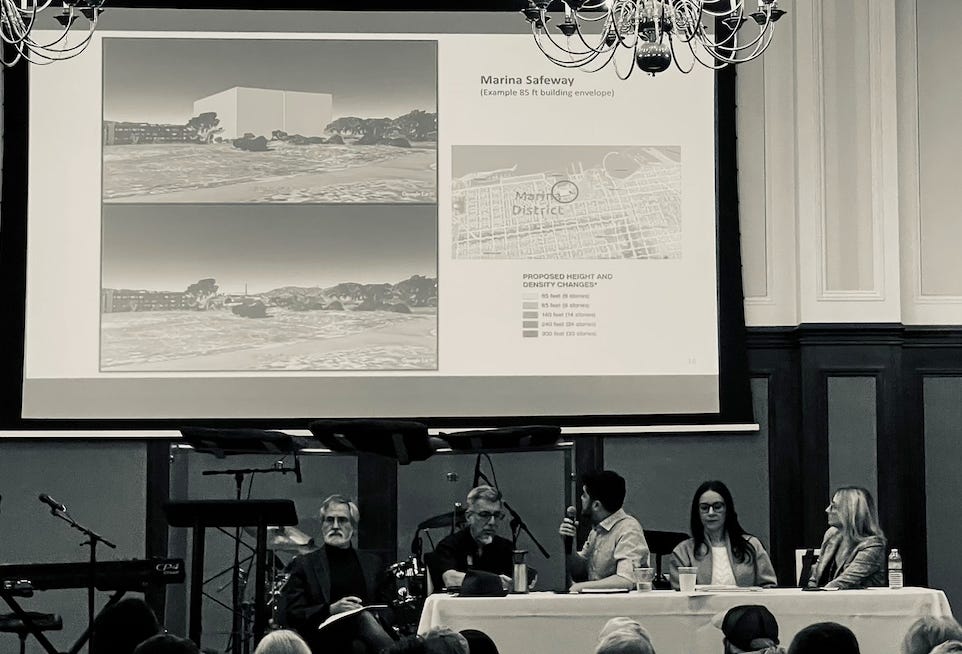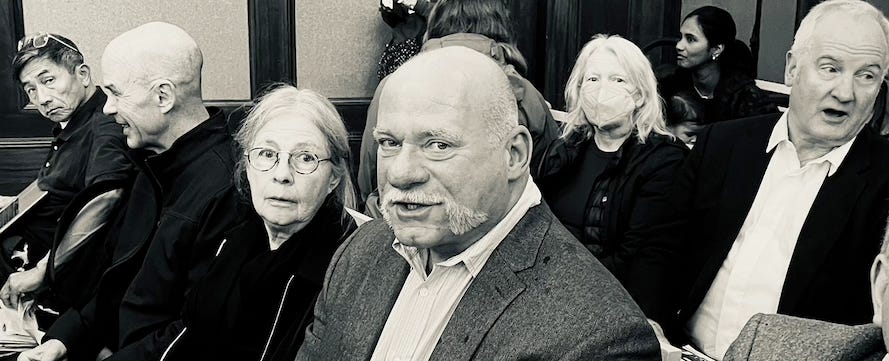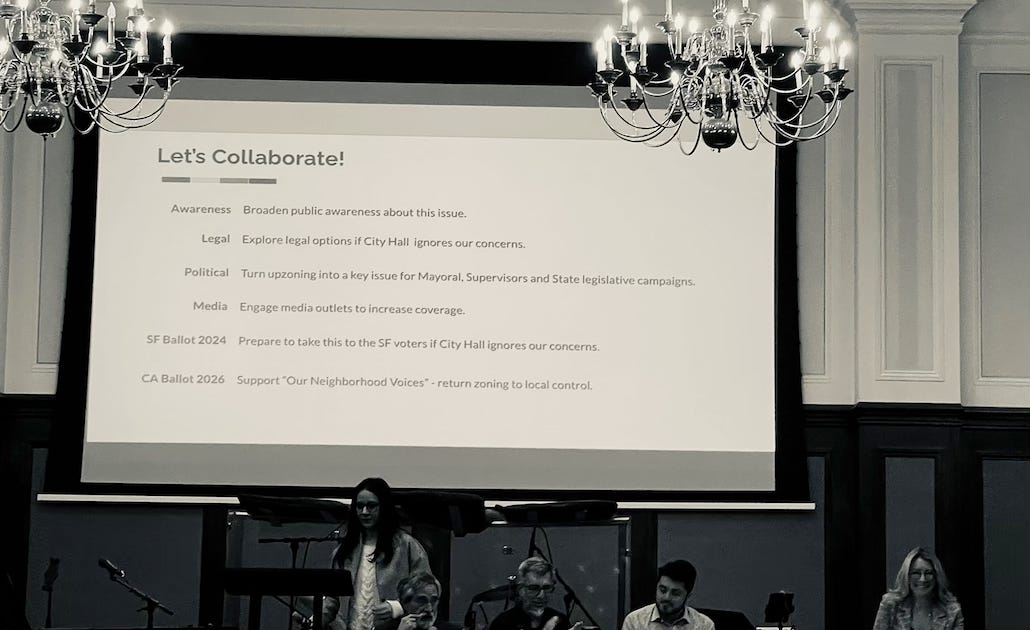San Francisco as Object Lesson in Housing Policy
On the other side of the world, a state official holds up San Francisco as a stark example of what not to do as the city girds herself for yet another protracted political fight over development

‘San Francisco and Sydney share many attributes, including beautiful architecture and natural harbours spanned by impressive bridges. Regrettably, both cities also share a housing crisis. While San Francisco teeters on what some claim is failed-city status, Sydney still has a chance to avoid a similar fate. But the window of opportunity to act is closing’
— Sydney Morning Herald Op-Ed, February 5
On February 5, Daniel Mookhey, the state treasurer of New South Wales, addressed an urban policy summit in Sydney, warning that Australia’s premier city had only a five- to 10-year window to avert what he called a “landed gentry” situation, where people with little or no generational wealth would no longer have any foothold for living there. He deliberately cited San Francisco as an example where the city did not want to head.
“Homelessness is claiming the middle class in San Francisco,” Mookhey said. “To be fair to San Francisco, they’re trying to do something about it, but their points of intervention are coming very late. That is creating tremendous stress to their social cohesion.”
“We still have a point in time to make better choices.”
The summit was organized by the Committee for Sydney, an urban policy think tank comparable to the Bay Area’s own San Francisco Bay Area Urban Research Organization (SPUR). The Committee for Sydney has some direct experience with San Francisco's development policy problems, as Gabriel Metcalf, the former CEO of SPUR until 2018, took the helm of the group until the end of 2022. Ironically, Metcalf is now back in Northern California as head of planning for California Forever, the project to build a new “15-minute” city in Solano County.
Meanwhile, in San Francisco, a campaign to claw back development policy reforms steered by Sacramento and aimed at increasing housing supply premiered last Sunday in North Beach at a town hall hosted by the Telegraph Hill Dwellers, one of San Francisco’s most potent neighborhood groups.
The emerging campaign is essentially a backlash to newly passed housing laws, like Senate Bills 35, and 8 (which streamlined housing project approvals), Senate Bill 9 (which made construction of multiple units and subdivisions on single-family lots easier), and Senate Bill 10 (which streamlined the zoning process for multi-unit housing projects near transit). Most of this legislation has been shepherded by San Francisco’s own State Senator Scott Wiener, and supported by most of the city’s delegation to Sacramento.
Board of Supervisors President Aaron Peskin emceed a panel featuring faces familiar to those watching the city’s housing politics: Fernando Marti, late of the Council of Community Housing Organizations, a lobby group for subsidy housing developers (many of whom take advantage of the new laws despite publicly opposing them); and Kyle Smealie, a former aide to Supervisor Dean Preston and the new policy director for the San Francisco Community Land Trust.
Also present were new allies Lori Brooke from Neighborhoods United SF, representing well-heeled homeowners, and Brentwood City Councilmember Jovita Mendoza, a spokesperson for a planned state ballot measure allowing cities and counties to circumvent recent state legislation that curtails local discretionary zoning - policies that contribute significantly to San Francisco’s affordability problems.
“I, for one, see a concerted multiyear effort to pre-empt local authority over housing,” Peskin said as he opened the discussion. “As we try to reassert our ability to govern locally free from state interference, I think it's important that we correct the record.”
The event attracted an overwhelmingly white and gray-haired crowd, including well-known anti-growth activists, such as Planning Commissioner Kathrin Moore and controversial former commissioner Dennis Richards.
The readout reiterated traditional objections to upzoning, including how housing development goals were too high to be practical and intended to “fuel a massive deregulation agenda” to benefit tech CEOs and realtors. Mendoza added some populist flavor to the narrative.
“What they want, what they give us is things like density bonus where they build stack-and-pack housing, and they stick us all in high-density housing because, you know, poor people don't deserve backyards, right?” Mendoza told the audience. “Poor people don't deserve, you know, to have parking and not have to fight for it. This is what Scott Weiner's done.”
After defining their narrative against the state legislation, the panel presented a provisional strategic timeline for challenging the current neighborhood upzoning set to be completed later in the Spring, possible legal action, and a potential local ballot initiative to precede the already planned state measure.
Clearly, the city’s legislative wars over housing, which began to shift in favor of supply in the 2010s, are set for a rematch during an especially contentious election year.






Great reporting, Mike. I don't think the mainstream media is reporting the latest NIMBY agenda and narrative.
Isn't it just CRAZY that folks want to live in a 2 to 4-story mixed use neighborhood, but aren't that thrilled about 8, 10, 12-story buildings popping up next to them